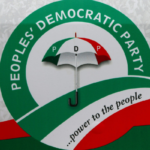On Monday this week, the Airline Operators of Nigeria (AON) told airline passengers to brace up for imminent disruption in scheduled flight operations across the country.
Stating that the “development is being forced on members by the growing scarcity of aviation fuel popular as Jet-Al,” AON’s spokesperson, Prof. Obiora, noted that, “The scarcity is impacting negatively on the seamless conduct of air transport operations and would lead to flight rescheduling and/or cancellations.”
- Police arrest 2 for kidnapping in Anambra, recover car
- Ripples as 17 outgoing govs battle to install successors
But even before the announcement, Nigeria had for months witnessed unprecedented flight disruptions because of the scarcity and high cost of Jet A1 fuel. This triggered the most expensive pricing regime in local airfares in the aviation industry, with ticket rates tripling in some routes.
But if the cost of the fuel is the only challenge in the sector, it wouldn’t be such a pressing national issue. There has been a lingering crisis in the aviation sector.
At a public hearing for six aviation bills between November 17 and19, 2019, the airline operators listed their challenges to include non-implementation of the Executive Order on zero Customs duty and zero VAT on importation of commercial aircraft and aircraft spare parts; inability to access forex, high cost of capital and lack of single digit lending interest rate for airlines; replacement of NCAA’s five per cent ticket sales charge (TSC) with a fixed charge similar to FAAN Passenger Service Charge (PSC).
Others include multiplicity of taxes, fees and charges, urgent review of NAICOM Act on aviation insurance and exceptional permission to grant; the externalisation of insurance placements for domestic airlines in the country on an exceptional basis in the interest of air transport safety due to inability of Nigerian insurance companies to cover aviation risks; multiple entries and multiple frequencies granted to foreign airlines and depletion of the domestic airline market with loss of jobs.
But what is most disheartening is that exactly 100 years after the first aircraft landed in Nigeria in 1922, at the now Mallam Aminu Kano International Airport, Kano, the nation is still having teething challenges in the sector. Meanwhile, Kano airport, which began operations in 1936, became an important fuel stop for international airlines and other special aircraft flying long-haul services between Europe, Asia and Africa, yet, Nigeria did not use the platform to modernise the aviation sector not to talk of making Lagos the undisputed natural hub it ought to be in West Africa.
It is also a failure of leadership that even the aviation fuel problem has been with us since 2016 when foreign airlines had to either suspend flights because they were not sure of getting fuel at the destination point which is Nigeria; or they went to Accra, Ghana, and other neighbouring countries to refuel. It was not different in 2017 when unnamed “cartels” were accused of hiking prices, then to N200 per litre. Now, in 2022, it sells as high as N600 per litre.
As part of the resolution of the crisis, airline operators would be licensed to import aviation fuel. But Nigeria’s local refineries should be fixed as a matter of national emergency so that the nauseating importation of fuel would stop. Also, the pipeline that supplied aviation fuel from Mosimi/Ejigbo to the Murtala Muhammed International Airport (MMIA) and from the fuel farms to the apron hydrants which ruptured in 1992 should be urgently repaired. This is in addition to linking the MMIA depot with the incoming Dangote refinery with pipelines.
Indeed, there must be concerted ways of implementing innovative ways to hasten the process of restoring confidence in Nigeria’s air travel.
The federal government should be transparent with the disbursement of the N5 billion for the sector approved for the COVID-19 Intervention fund for the industry in order for the operators to reduce pressure on liquidity.
In addition, the unfavourable over 90 Bilateral Air Services Agreements (BASAs) Nigeria signed with different countries which are being used to the advantages of the foreign airlines should be reviewed. The spiral effect of the bad air transport agreements was seen in the way the foreign countries turned the situation against Nigeria in the peak of the COVID-19 pandemic.
Also, the AON, in alliance with product marketers, government and relevant stakeholders must ensure the availability and proper pricing of aviation fuel in the country while other challenges bedevilling the sector are taken care of.
The airlines must also play their part. They must not default in payment of taxes or disrupt flights at will. There’s also the issue of some marketers diverting Jet fuel to foreign airlines; that must be stopped forthwith. Furthermore, we reject any idea/decision that will result in a new subsidy regime.
And because the bedrock of the aviation sector is safety and security, there is need for the aviation agencies – Nigerian Airspace Management Agency (NAMA), Nigerian Meteorological Agency (NiMet), the Nigerian Civil Aviation Authority (NCAA) and the Nigerian College of Aviation Technology (NCAT) to do more in the bid to take the sector to the next level in line with international standard.

 Join Daily Trust WhatsApp Community For Quick Access To News and Happenings Around You.
Join Daily Trust WhatsApp Community For Quick Access To News and Happenings Around You.


